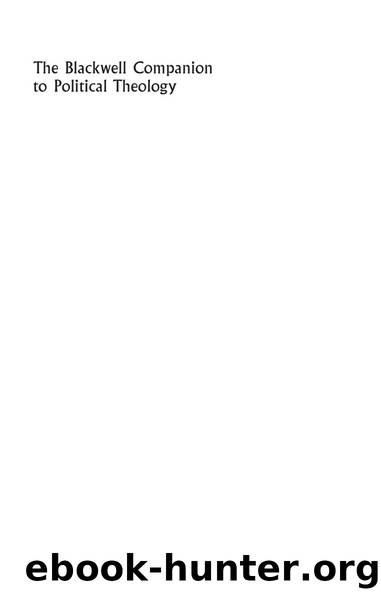108693.pdf by Unknown

Author:Unknown
Language: eng
Format: epub
Published: 2011-09-15T21:03:56+00:00
278
m. shawn copeland
Julian Kunnie interrogates the current South African situation from the perspective of poor rural peasant and working-class blacks who lack adequate food, health care, shelter, education, and employment. He asks the most blunt and uncompromising question, Is Apartheid Really Dead? Wielding razor-sharp hermeneutics of suspicion, Kunnie detects a growing collusion between “capitalism and colonialism” and signals this as an attempt to recreate “a European ruling-class culture, at the cost of humiliating black people and forcing us to serve this oppressive culture” (Kunnie 2000: 252). He is nearly scornful of the TRC and contends that it “does not embody justice and subscribes to a convo-luted and perverse sense of justice and truth” (pp. 197–8). Kunnie appeals to South Africans to reject capitalistic notions of progress and to embrace “a qualitatively and radically different value system, one that is spiritually and culturally indigenous in its essence, in that it is pro-worker, anti-individualistic and collectively defined, socialistic in its core, and embracing of female leadership and direction” (p. 194).
Given high global rates of black incarceration, the black political subject is an incarcerated subject certainly. Robert Beckford is one of a handful of black theologians to address this issue in any detail and does so as part of an interrogation of the rage that boils up in black people due to living under intense, varied, and complex systems of racialized oppression. Beckford scrutinizes the Bible for a God of the Rahtid, a “God who [will side with and make] sense of black rage in response to racialised oppression in Britain,” yet who will be compatible with the teachings of Jesus (Beckford 2001: 40). Employing the term rahtid, a Jamaican derivative of the biblical word “wrath,” Beckford aims to retrieve the notion of redemptive vengeance. Because “the least” have an indisputable claim on black political/liberation theology, Beckford grounds his theologizing in concrete praxis. Taking seriously Jesus’ appeal to the ancient Jubilee tradition of “setting captives free,” he conducts day-long weekly seminars at Birmingham prison.
While the notion of prison as a “mission field” is not new, Beckford exploits its potential to serve as a site for radical self-transformation, as it did for King and Malcolm X (p. 134). The men incarcerated at Birmingham may have been caught in structures that “subjugate and sedate black people” into accepting criminal behavior as the only means to escape oppression, but Beckford observes that they have made bad choices and many are hardened criminals. Still, he seeks to “redeem the hustler,” for restitution comes through time in prison and
“substantive ‘heart’ [and life] change” (pp. 145, 136). Using film as a common text, Beckford and the prisoners talk to one another about economics, politics, power, and difference; this opens a path for deeper self-examination through which the men reflect upon their situations, confront and express rage, and grasp the meaning of restitution through cultivating practices that sustain meaningful transformation of life (pp. 133–6, 150).
Caribbean theological discourse about the black subject has been fairly muted, perhaps because of the region’s
Download
This site does not store any files on its server. We only index and link to content provided by other sites. Please contact the content providers to delete copyright contents if any and email us, we'll remove relevant links or contents immediately.
Aircraft Design of WWII: A Sketchbook by Lockheed Aircraft Corporation(32290)
The Great Music City by Andrea Baker(32019)
Call Me by Your Name by André Aciman(20516)
The Secret History by Donna Tartt(19088)
The Art of Boudoir Photography: How to Create Stunning Photographs of Women by Christa Meola(18626)
Shoot Sexy by Ryan Armbrust(17728)
Plagued by Fire by Paul Hendrickson(17412)
Portrait Mastery in Black & White: Learn the Signature Style of a Legendary Photographer by Tim Kelly(17006)
Adobe Camera Raw For Digital Photographers Only by Rob Sheppard(16976)
Photographically Speaking: A Deeper Look at Creating Stronger Images (Eva Spring's Library) by David duChemin(16687)
Ready Player One by Cline Ernest(14675)
Pimp by Iceberg Slim(14507)
Bombshells: Glamour Girls of a Lifetime by Sullivan Steve(14075)
The Goal (Off-Campus #4) by Elle Kennedy(13673)
Art Nude Photography Explained: How to Photograph and Understand Great Art Nude Images by Simon Walden(13046)
Kathy Andrews Collection by Kathy Andrews(11831)
The Priory of the Orange Tree by Samantha Shannon(9098)
The remains of the day by Kazuo Ishiguro(8999)
Thirteen Reasons Why by Jay Asher(8910)
